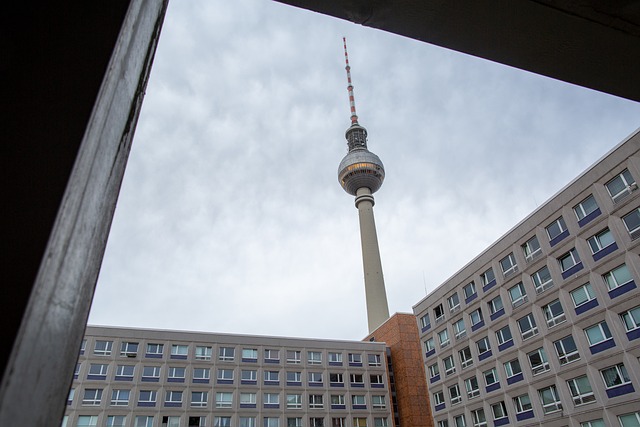Moving to the UK: A Step-by-Step Guide

Moving to the United Kingdom can be an exciting and life-changing experience, offering opportunities for personal growth, career advancement, and cultural enrichment. However, the process of relocating to a new country can be complex and requires careful planning. This step-by-step guide provides a comprehensive overview of what you need to know and do to make your move to the UK as smooth and successful as possible.
1. Research and Planning
A. Determine Your Reason for Moving
- Work: If you are moving for employment, ensure you have a job offer and understand the visa requirements.
- Study: If you are moving to study, secure admission to a UK educational institution and obtain the necessary student visa.
- Family: If you are joining family members, ensure you meet the eligibility criteria for a family visa.
- Other Reasons: Consider other reasons such as retirement, investment, or asylum, and research the specific requirements.
B. Research the UK
- Location: Decide where in the UK you want to live. Consider factors such as job opportunities, cost of living, and lifestyle preferences.
- Cost of Living: Research the cost of living in your chosen area, including housing, transportation, and daily expenses.
- Culture and Lifestyle: Familiarize yourself with British culture, customs, and lifestyle to ease your transition.
2. Visa and Immigration
A. Determine the Appropriate Visa
- Work Visa: Options include the Skilled Worker Visa, Global Talent Visa, and Intra-Company Transfer Visa.
- Student Visa: Apply for a Student Visa if you are enrolling in a UK educational institution.
- Family Visa: Apply for a Family Visa if you are joining a spouse, partner, or family member who is a UK resident.
- Other Visas: Explore other visa options such as the Ancestry Visa, Investor Visa, or Retiree Visa.
B. Gather Required Documents
- Passport: Ensure your passport is valid for the duration of your stay.
- Proof of Funds: Provide evidence of sufficient funds to support yourself and any dependents.
- Job Offer or Admission Letter: For work or study visas, include a job offer letter or university admission letter.
- Health Records: Obtain necessary health records and vaccinations.
C. Submit Your Application
- Online Application: Complete the visa application form online through the UK Visas and Immigration (UKVI) website.
- Biometrics Appointment: Schedule and attend a biometrics appointment to provide fingerprints and a photograph.
- Pay Fees: Pay the applicable visa fees and healthcare surcharge (Immigration Health Surcharge).
D. Attend an Interview (if required)
- Preparation: Prepare for a visa interview by reviewing your application and supporting documents.
- Interview: Attend the interview at the designated visa application center.
3. Housing and Accommodation
A. Temporary Accommodation
- Short-Term Rentals: Consider booking temporary accommodation, such as a hotel or Airbnb, for your initial stay.
- Serviced Apartments: Look into serviced apartments for a more comfortable and flexible option.
B. Finding Permanent Housing
- Research: Use online platforms like Rightmove, Zoopla, and Gumtree to search for rental properties.
- Viewings: Schedule property viewings to assess the condition and suitability of potential homes.
- Contracts: Review and sign a tenancy agreement, ensuring you understand the terms and conditions.
C. Utilities and Services
- Set Up Utilities: Arrange for the setup of essential utilities such as electricity, gas, water, and internet.
- Council Tax: Register for council tax, a local tax that funds community services.
4. Healthcare
A. Register with the NHS
- NHS Number: Apply for an NHS number to access healthcare services.
- GP Registration: Register with a local General Practitioner (GP) to receive primary healthcare services.
B. Health Insurance
- Private Insurance: Consider purchasing private health insurance for additional coverage and faster access to certain treatments.
5. Banking and Finances
A. Open a Bank Account
- Choose a Bank: Research and choose a bank that meets your needs.
- Required Documents: Provide proof of identity, proof of address, and visa status to open an account.
B. Manage Finances
- Budgeting: Create a budget to manage your income and expenses.
- Taxes: Understand your tax obligations and register with HM Revenue & Customs (HMRC) if necessary.
6. Employment and Education
A. Job Search
- CV and Cover Letter: Prepare a UK-style CV and cover letter.
- Job Portals: Use job portals like Indeed, LinkedIn, and Reed to search for employment opportunities.
- Networking: Attend job fairs, networking events, and professional associations to connect with potential employers.
B. Education
- School Enrollment: If you have children, research and enroll them in a local school.
- Further Education: Explore opportunities for further education or professional development.
7. Transportation
A. Public Transport
- Oyster Card: In London, get an Oyster Card for convenient access to public transportation.
- Travel Cards: Consider purchasing travel cards for unlimited travel within certain zones.
B. Driving
- Driver’s License: Check if you can use your current driver’s license or need to apply for a UK license.
- Vehicle Registration: If you bring a vehicle, ensure it meets UK standards and is properly registered.
8. Social Integration
A. Learn the Language
- English Proficiency: If English is not your first language, consider taking English language classes.
- Language Apps: Use language learning apps like Duolingo or Babbel to improve your skills.
B. Cultural Adaptation
- Local Customs: Familiarize yourself with British customs, etiquette, and social norms.
- Community Involvement: Join local clubs, organizations, or community groups to meet new people and build a social network.
C. Explore the UK
- Travel: Take the opportunity to explore different regions of the UK, from historic cities to scenic countryside.
- Cultural Events: Attend cultural events, festivals, and exhibitions to immerse yourself in British culture.
9. Legal and Administrative Tasks
A. Register with Local Authorities
- Police Registration: Some visa holders are required to register with the police upon arrival.
- Visa Extensions: Keep track of your visa expiration date and apply for extensions if necessary.
B. National Insurance Number
- Application: Apply for a National Insurance Number (NIN) to work and access certain benefits.




